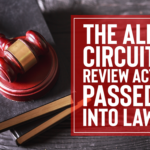Commodity Futures Trading Commission
Whistleblower Claims
The entire investing world remembers the May 2010 “flash crash” that sent the Dow plummeting 1,000 points instantly. While speculation ran wild for months as to who or what caused it, it was not until April 2015 that a London trader was arrested for his role in the crash, for which he reportedly earned $40 million. The trader now faces criminal charges and a U.S. Commodity Futures Trading Commission (CFTC) civil claim. Although the trader eluded detection for years, it was a whistleblower who put together the pieces leading to the trader’s involvement, and now, under the CFTC’s Whistleblower Program, that whistleblower stands to recover between 10% and 30% of what the CFTC recovers, which should be a hefty payday for the whistleblower given the numbers involved.
The CFTC introduced its Whistleblower Program in recent years and made its first award of $240,000 to an anonymous whistleblower in 2014; it has indicated it would like to attract more whistleblowers through further payouts. The program pays eligible whistleblowers between 10% and 30% of monetary sanctions when it recovers over $1 million. Keep in mind that penalties imposed in a CFTC action may far exceed the amount of money involved in the underlying transaction, and will be included in determining the whistleblower’s award.
Our clients are heroes. They choose to do what’s right against tremendous odds and under great pressure.
Bringing a CFTC Whistleblower Claim
To be an eligible CFTC whistleblower, an individual must provide the CFTC with original information relating to potential violations of the Commodity Exchange Act. Original information can include knowledge that the whistleblower received privately (as opposed to reading it in a publicly available source), or information that was the product of the whistleblower’s independent analysis of public information, as was the case with the “flash crash” whistleblower. The information must also be “voluntarily” provided to the CFTC, meaning that it was provided on the whistleblower’s volition and not in response to a government or self-regulatory request, inspection, or investigation. If the whistleblower had previously reported the information internally or to another regulatory body, he or she still may be an eligible whistleblower if the information is also reported to the CFTC within 120 days.
The whistleblower or his or her attorney must report the information directly to the CFTC. In order to obtain a recovery, the information must result in a successful action against the alleged wrongdoer. A whistleblower can increase his chances of a successful recovery by working with a skilled whistleblower attorney who will oversee the collection and presentation of the critical evidence in a way that will maximize the potential for a successful CFTC investigation into the alleged wrongdoing and successful recovery.
An attorney will also act as an ongoing representative of the whistleblower, and can assist in guiding the investigation toward a timely and successful resolution. Furthermore, if a whistleblower wishes to remain anonymous, he must be represented by counsel. The Whistleblower Program provides anti-retaliation measures to protect the whistleblower, and the whistleblower’s attorney can also act to represent the whistleblower’s interests in any adverse employment actions. You can read more about the CFTC’s Whistleblower Program on the Commission’s website or download a copy of the Commission’s Whistleblower Rules.
At Kreindler and Associates, we have been working for over 15 years with courageous individuals who have brought fraud to light. If you have evidence of Commodity Exchange Act violations, contact us today, and we will work you with every step of the way.



